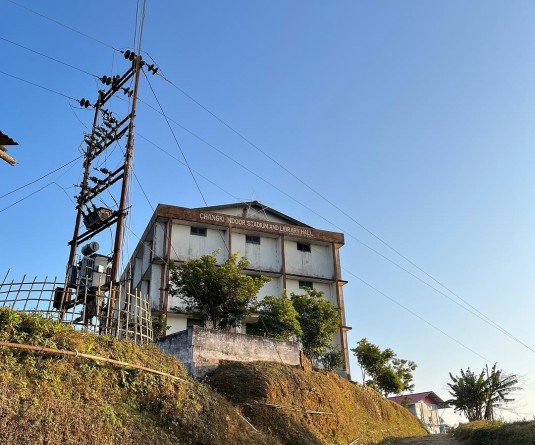Zakielhouno Tepa, the lone woman taxi driver in Kohima. (Morung Photo)
Vibi Yokha
Kohima | March 7
Kohima | March 7
For a patriarchal society like the Naga society, inspiring change is not always associated with women. The unpaid labour that women contribute to prepare tea in the morning, cook breakfast, lunch and dinner, clean the house and wash clothes are not considered as inspiring.
As Nagaland celebrates the International Women’s Day on March 8, under the theme ‘Inspiring Change’, it is important to look at how the Naga woman has inspired change. The International Women’s Day was first celebrated in 1911.
The very fact that we exist is because a woman chose to give life. If that is not enough, women are more than that. Women are not just homemakers, they are the ones sustaining the family. The daily routine of a working woman in Nagaland often starts with her waking up earlier than the others, preparing tea and breakfast as she gets ready for work. After work, there is more. She is the one who prepares dinner, washes the dishes and cleans the house.
The inspiring change contributed by women is not just limited to the urban areas; in fact women in rural areas have impacted the agricultural system and economy of Nagaland. Any local market in Nagaland is dominated by women. However these changes are often taken for granted. “Looking in the grassroot level, women have contributed immensely in the food production, agro-biodiversity and the local food system,” says Akole from the North East Network (NEN), who is of the view that women have taken the lead to pave the way for climate change and food security.
However Akole insists that there is a need for the participation of women in the decision making body not just in urban areas but in the village level and that the agricultural policies need to consider women’s perspective.
The sole woman taxi driver in Kohima
40 years old Zakielhouno Tepa is a woman from Kohima who has inspired change in society. The sole woman taxi driver in Kohima, Zakielhouno is not just an inspiration to women but to everyone else because despite having the luxury to employ a driver, she chose to become one herself. “At first, I was really shy to drive a taxi but now I’m used to it that I don’t mind at all,” she says.
Hailing from Mima village, she has been residing in Kohima for 20 years. Before becoming a taxi driver, she owned a grocery store but gave it up after she realized that there was not much profit because of taxes and house rent. “Being the only woman taxi driver doesn’t make me feel so different from the other male drivers,” says Zakielhouno. She adds that in the initial days her male colleagues would often make fun of her but that now they are used to her.
Some of her friends have told her that she has fulfilled their dreams and that they feel encouraged to join her. Zakielhouno hopes that she will soon have more female colleagues to join the taxi driving community.






